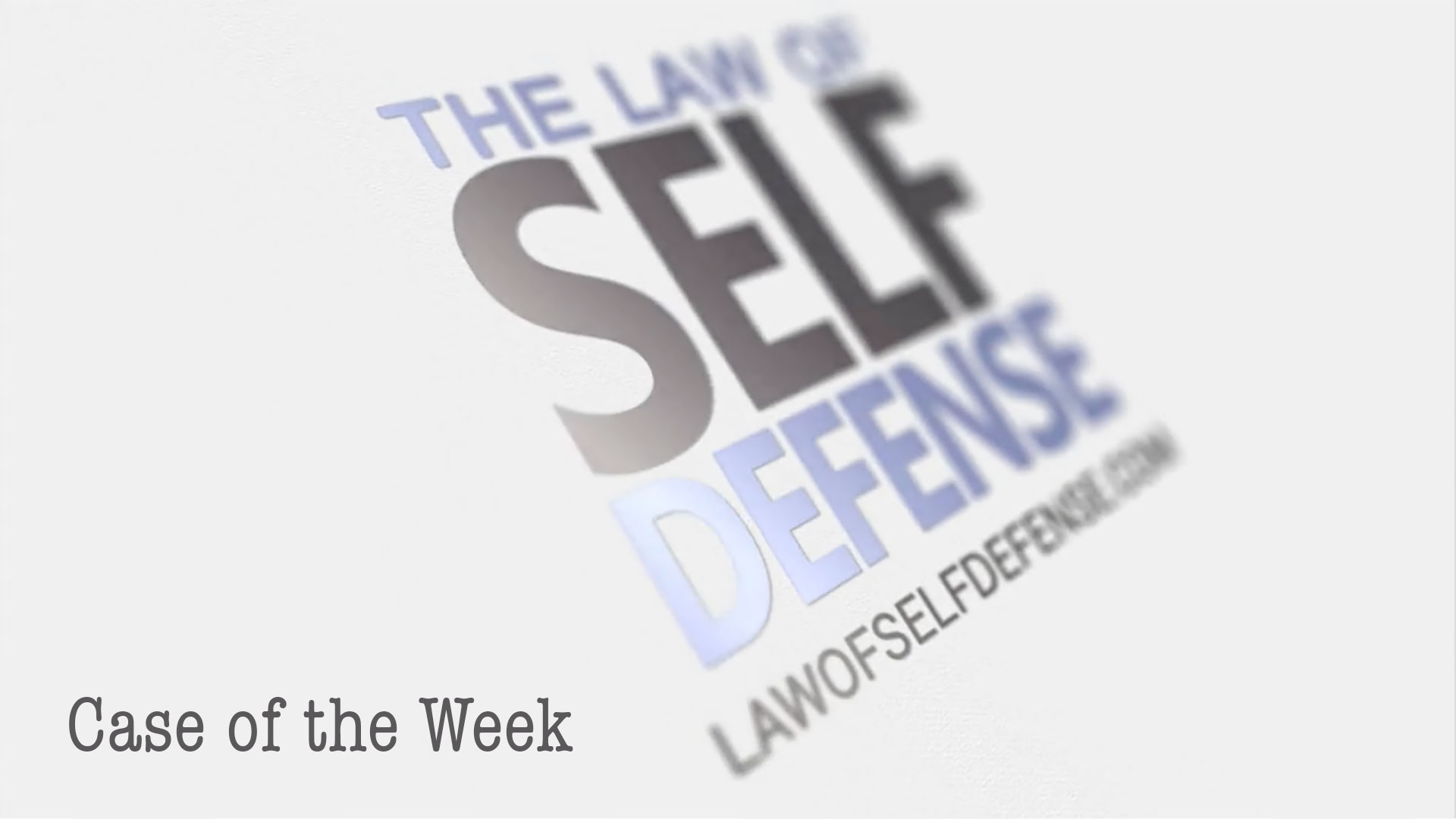
Posted on July 4, 2018
Case Of The Week with Andrew Branca- When The Defender Becomes The Aggressor
Self-Defense Claim Lost When Defender Becomes Aggressor
This week’s case is a recent criminal trial sentencing out of Connecticut that purportedly involves principles of “Stand-Your-Ground,” but that in reality, of course, has nothing to do with “Stand-Your-Ground” at all.
Three-on-One Attack Ends With Defender Convicted
The Defendant in this case was Jeffrey Sumpter, 21 years old, who was working his job at a Dunkin Donuts coffee shop when he was assaulted by three attackers (or “juvelines,” as the media labels this gang of aggressors). Sumpter ended up stabbing one of the attackers in claimed self-defense. He was charged with felony first-degree assault, found guilty, and just days ago was sentenced to 18 months in jail and three years probation. (All as reported per the CTPost, and other sources.)
Why Not Acquitted on Basis of Self-Defense?
A reasonable argument could be made that Sumpter’s use of deadly defensive force was warranted, given the 3-to-1 ratio of attackers to defenders, and it was uncontested that the three “juveniles” initiated the attack against him, not the other way around. So how did Sumpter end up convicted of felony assault, rather than acquitted on the basis of self-defense?
The headline used by the media suggests one possibility: “Victim of Norwalk assault gets 18 months for not retreating” (emphasis added). And, as usual, the media gets it wrong.
Was Failure to Retreat the Defect?
As a quick refresher, there are five elements to a claim of self-defense—innocence, imminence, proportionality, avoidance, and reasonableness—and the issue of retreat falls under the element of Avoidance. Avoidance has to do with whether there’s a legal duty to retreat, if safely possible, before using force in self-defense.
The large majority of states, about 36, are Stand-Your-Ground states that do not impose the element of Avoidance absent aggravating circumstances, and in those states there is no legal duty to retreat before defending oneself.
It’s true that Connecticut, where these events took place, is one of the few 14 or so remaining “duty-to-retreat” states So, was the problem with Sumpter’s claim of self-defense that he had a safe avenue of retreat, but failed to take advantage of it before he stabbed one of his attackers? That’s certainly what the headline “Victim of assault gets 18 months for not retreating” would suggest, right?
Well, as you might have guessed, the answer is “no,” the failure of Sumpter’s claim of self-defense had nothing to do with him failing to take advantage of a safe avenue of retreat, and thus nothing to do with the element of Avoidance.
Self-Defense Fails If Defender Becomes Aggressor
The failure of Sumpter’s claim of self-defense is found in the element of Innocence. How can that be, you might ask, given that it’s uncontested that the three aggressors attacked HIM. Because, as the media itself reports: “After being assaulted inside the coffee shop, Sumpter ran outside and stabbed one of the men.”
That is a problem. In the eyes of the law what we have here is not a single fight in which Sumpter defended himself against the attack of the three aggressors. That fight did happen, but it also ended, when the aggressors left the coffee shop.
When Sumpter then pursued them and stabbed them, he became the aggressor in a secondfight. As the aggressor in this second fight he lost the element of innocence, and thus lost self-defense as a justification for his stabbing one of the aggressors.
Self-Defense, Yes; Vengeance, No
The law of self-defense allows for the use of defensive force to resist an imminent unlawful use of force against you. It does not allow you to engage in acts of retribution or vengeance.
Remember folks: When you go to the fight instead of the fight coming to you, it very rarely looks like self-defense to anybody.
“Racist” Stand-Your-Ground Not So Racist
By the way, just as an aside, “Stand-your-Ground” has widely characterized by social justice warriors and the media (but I repeat myself) as “racist,” especially after the George Zimmerman trial, and efforts to have the few remaining duty to retreat states join the stand-your-ground majority of states is vigorously fought against on those grounds.
Had this case hinged on this defendant’s failure to retreat, however, then SYG could have savedhis claim of self-defense. And as it happens, this defendant is a young black male. Thus SYG could have saved a young black male from prison. SYG is racist? I think not—I think it favors everyone with a valid claim of self-defense, regardless of race or any other personal characteristic. That’s why I’m an advocate for SYG.
–Attorney Andrew F. Branca, Law of Self Defense LLC
Learn more about self-defense law from Attorney Andrew F. Branca and Law of Self Defense LLC by visiting the Law of Self Defense Patreon page for both free and paid-access content, and by viewing his free weekly Law of Self Defense Show.